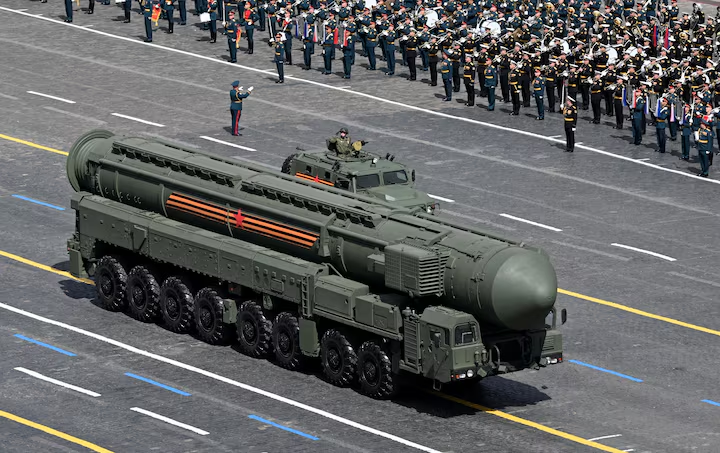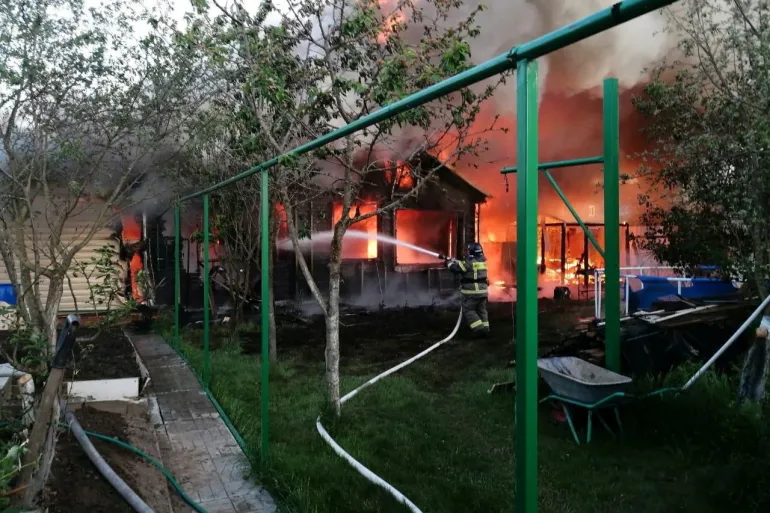Ukraine’s military intelligence agency reported on Sunday, May 18, 2025, that Russia is preparing to launch an intercontinental ballistic missile (ICBM) later in the day. The planned test has heightened tensions, coming just hours after the latest round of failed peace talks between Moscow and Kyiv in Istanbul.
According to the Ukrainian Main Directorate of Intelligence (GUR), Russian forces have been observed preparing for the missile launch from a test site in the Kamchatka Peninsula in Russia’s Far East. The intelligence report suggests that the launch is a strategic demonstration intended not only to test weapons capabilities but also to send a political signal to Ukraine and the West.
Ukraine’s military leadership warned that while the launch is likely a planned test, it serves as a reminder of Russia’s growing nuclear posturing in the context of the ongoing war. Kyiv officials said they do not believe the launch poses a direct threat to Ukraine but emphasized that such moves escalate an already volatile regional security environment.
“Russia continues to leverage its nuclear arsenal as a form of psychological warfare and diplomatic pressure,” a GUR spokesperson said. “Even tests can serve propaganda purposes.”
There has been no official confirmation from the Russian Ministry of Defense, though Russian media have in the past reported scheduled ICBM tests from Kamchatka and other remote locations as part of the country’s military readiness exercises.
This latest development follows a series of actions by Russia indicating a renewed emphasis on its strategic deterrence forces, including recent satellite imagery showing expanded missile infrastructure and increased troop movement at nuclear-related facilities. NATO allies have previously warned that Russia’s nuclear signaling poses serious risks, especially in the midst of an ongoing ground war in Ukraine.
The reported ICBM launch also comes amid escalating battlefield clashes in eastern Ukraine, particularly near the Donetsk and Kharkiv regions, where Ukrainian forces are resisting renewed Russian offensives. Ukrainian President Volodymyr Zelenskyy has appealed for more international support and warned that any escalation in Russia’s nuclear rhetoric must be met with diplomatic firmness and military readiness from NATO partners.
Meanwhile, the United States and European Union have not publicly commented on the planned launch but are closely monitoring developments. U.S. intelligence officials speaking on background indicated that the missile test is consistent with previously observed Russian behavior but stressed the need for transparency to avoid misinterpretation.
Russia has historically notified other countries, including the U.S., ahead of major missile tests under existing arms control agreements. However, since the suspension of the New START Treaty in early 2023, mutual notification protocols have become irregular, increasing risks of miscalculation.
The use of such missile tests during wartime raises broader questions about Russia’s nuclear strategy and the potential for strategic miscommunication. Military analysts suggest that even symbolic shows of force like missile launches can complicate diplomacy and exacerbate fears in already vulnerable regions.
As of Sunday evening, it remains unclear whether the missile will be launched or whether Russia will make any official announcement. The situation is being closely monitored by Western defense agencies, and Kyiv has urged its allies to view the development not in isolation but as part of Russia’s broader campaign of intimidation.
For now, the ICBM preparations are the latest in a series of escalatory moves underscoring how nuclear threats—both implied and demonstrated—continue to hang over the war in Ukraine like a shadow, complicating peace efforts and raising the stakes in an already dangerous conflict.
Source; Reuters


